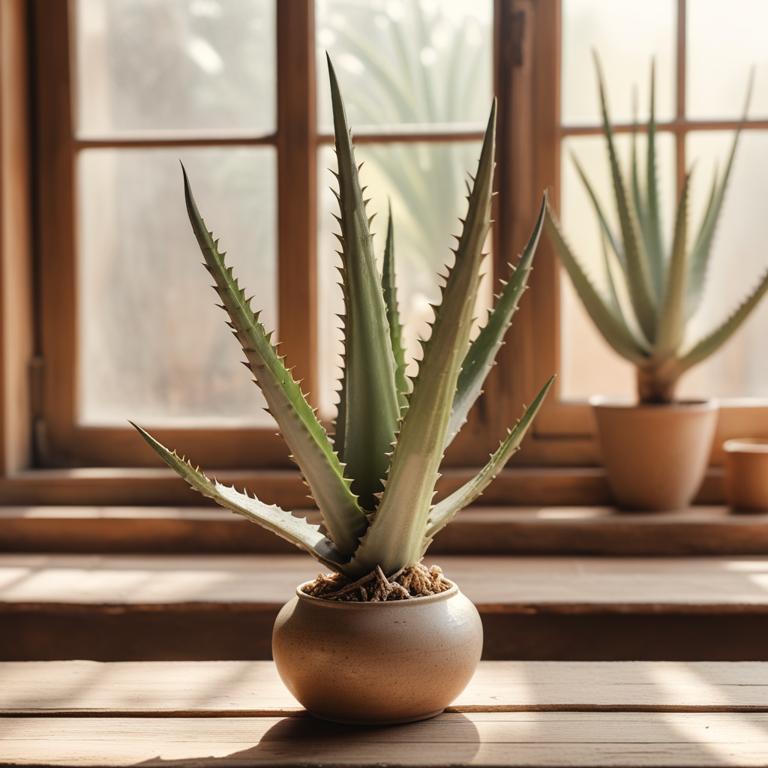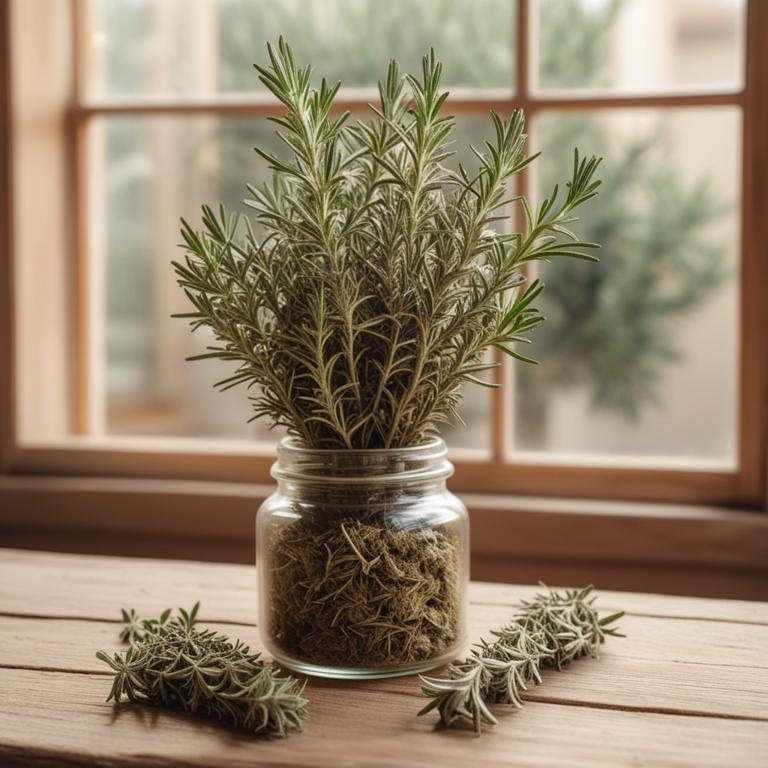Updated: Dec 1, 2024
Dry Skin Relief: Understanding Causes and Herbal Preparations

Dry skin can be a real nuisance, making your skin feel tight and itchy.
It can even crack and bleed, especially in cold weather. When you have dry skin, everyday activities like washing your hands or taking a shower can be painful and uncomfortable. So, what causes dry skin?. It's often due to a lack of moisture in the air, harsh soaps, or dry air from heating systems.
Fortunately, there are some wonderful herbal remedies that can help soothe and heal dry skin. Herbs like aloe vera, chamomile, and calendula are known for their moisturizing and anti-inflammatory properties. They can help calm itchy skin and lock in moisture. You can use these herbs in various ways, such as making a tea from dried calendula flowers, which can be used as a soothing bath soak.
You can also apply aloe vera gel directly to your skin after a shower, or mix it with other herbs to create a nourishing face mask.
Table of Contents
What leads to dry skin?
The main causes of dry skin are quite straightforward.
One of the main culprits is harsh soaps, which strip the skin of its natural oils, leading to dryness and irritation. When we use soaps that are too harsh, they take away the skin's natural moisture barrier, leaving it feeling rough and tight. Cold weather is another big contributor to dry skin. When the temperature drops, the air loses its moisture, making it harder for our skin to stay hydrated. This is especially true for people who live in areas with very cold winters or have to spend a lot of time outdoors in the cold. Dry air is another common cause of dry skin.
When the air is too dry, it pulls moisture out of our skin, leaving it feeling dry and cracked. This is often a problem in areas with low humidity or during the winter months when the air tends to be drier. Skin conditions like psoriasis and eczema can also lead to dry skin. Psoriasis is a condition that causes red, scaly patches on the skin, while eczema is a condition that causes dry, itchy skin. Both conditions can cause dry skin, and in some cases, dry skin can even trigger or worsen these conditions. Lastly, people with psoriasis often have dry skin as a symptom of the condition itself.
The scales and plaques that form on the skin can lead to dryness, itchiness, and discomfort.
What are the benefits of using herbs to treat dry skin?
Using herbs for dry skin can be a game-changer for people who struggle with flaky, itchy skin.
One of the main benefits is that these herbs are natural and gentle, so they won't irritate your skin further. They can help lock in moisture, leaving your skin feeling soft and supple.
Some herbs have anti-inflammatory properties, which can reduce redness and swelling, making them perfect for sensitive skin. Others have antioxidant properties, which can protect your skin from damage caused by free radicals. Additionally, using herbs for dry skin can be a cost-effective and eco-friendly alternative to harsh, chemical-based products.
They can also be used in combination with other skincare products to enhance their effectiveness.
What are the main medicinal herbs that treat dry skin?
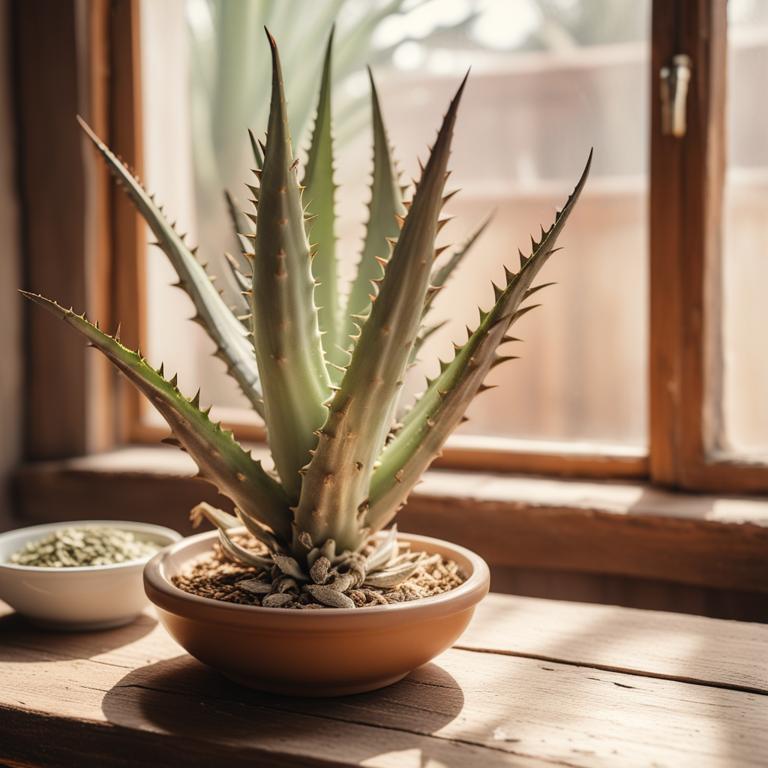
If you have dry skin, you might want to try using herbs to help soothe and moisturize it.
Aloe barbadensis, also known as aloe vera, is a popular choice because it's packed with vitamins and minerals that can help lock in moisture. Its gel-like texture can also provide a cooling and calming effect on dry skin. Calendula officinalis, or marigold, has anti-inflammatory properties that can help reduce redness and irritation in dry skin. It's also rich in antioxidants that can help protect the skin from damage.
Symphytum officinalis, or comfrey, contains compounds that can help repair and regenerate damaged skin cells. This makes it a great herb to use on dry skin that's cracked or broken. Urtica dioica, or stinging nettle, is often used in skincare products to help moisturize and protect dry skin. It's also been shown to have anti-inflammatory properties that can help reduce redness and irritation. Saponaria officinalis, or soapwort, contains saponins, which are natural cleansers that can help clean and moisturize dry skin without stripping it of its natural oils.
This makes it a great herb to use on dry skin that needs a bit of extra TLC.
What are the most used herbal remedies for dry skin?
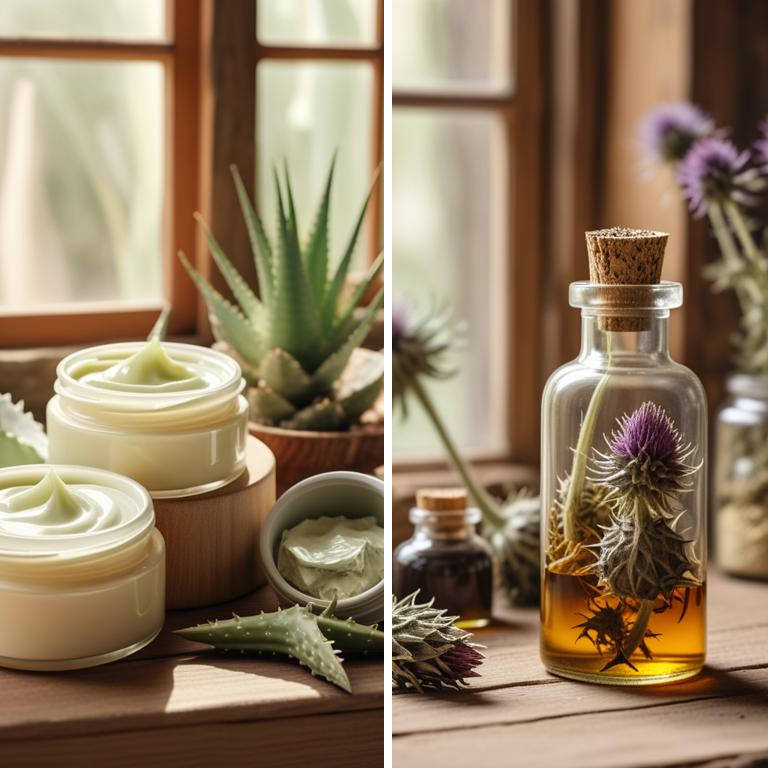
If you have dry skin, using herbal preparations can be a great way to soothe and moisturize it.
One good option is a cream made from herbs like aloe vera or coconut oil. These creams help lock in moisture and protect your skin from dryness. Another option is a salve, which is similar to a cream but often thicker and more protective. Salves can be made from herbs like beeswax and shea butter, which help create a barrier on your skin to keep it from getting too dry. You can also try drinking a decoction, which is a liquid made by steeping herbs in hot water. Decoctions can be made from herbs like calendula and chamomile, which are known for their soothing and moisturizing properties.
Drinking a decoction can help from the inside out, keeping your skin hydrated and healthy. Another option is an ointment, which is a thick, paste-like preparation made from herbs and oils. Ointments can be used to moisturize dry skin and can be made from herbs like comfrey and plantain. For dry skin that's really stubborn, you might want to try a tincture. A tincture is a liquid made from herbs that are soaked in a solvent like alcohol or glycerin. Tinctures can be applied directly to the skin to help soothe and moisturize it.
They can also be added to other preparations, like creams and ointments, to give them an extra boost of herbal power.
Additional Resources:
What herbs should you steer clear of if you have dry skin?
If you have dry skin, it's best to avoid using Eucalyptus globulus, as its essential oil can be quite harsh and drying.
This herb is often used for its decongestant properties, but it can strip your skin of its natural moisture, making dry skin worse. Melaleuca alternifolia, or tea tree oil, is another herb to use with caution. While it's great for fighting acne and infections, it can also cause skin irritation and dryness, especially if used in high concentrations. Gaultheria procumbens, also known as wintergreen oil, contains a compound called methyl salicylate, which can be drying to the skin.
It's often used for its pain-relieving properties, but its effects on dry skin can be negative. Arctium lappa, or burdock root, can also be problematic for dry skin. Its high tannin content can cause skin to dry out even further, making it more prone to irritation and discomfort. Finally, Echinacea purpurea, a popular herb for immune system support, can be drying to the skin, especially if taken in high doses.
This can exacerbate existing dry skin issues, making it more difficult to manage.
FAQ
Are there any specific herbs that can prevent dry skin?
Some herbs like aloe vera and chamomile have soothing properties that can help with dry skin.
Aloe vera's gel can moisturize and calm dry patches, while chamomile's anti-inflammatory properties can reduce redness and irritation.
These herbs can be used in creams, ointments, or even applied directly to the skin.
Is it safe to use herbal remedies for dry skin during pregnancy?
When it comes to dry skin during pregnancy, some herbal remedies might be tempting.
However, be cautious with ingredients like aloe vera and chamomile, as they can stimulate the uterus and cause issues. Others, like calendula, are generally considered safe.
Always check the product label for any potential risks.
Are there any herbs that can reduce the frequency of dry skin?
Aloe vera is often used to soothe and calm dry skin.
It contains compounds that help lock in moisture and reduce irritation. Oatmeal, another common remedy, is known for its anti-inflammatory properties, which can help calm and protect dry skin.
These natural ingredients can be found in creams and ointments or used directly on the skin.
Related Articles
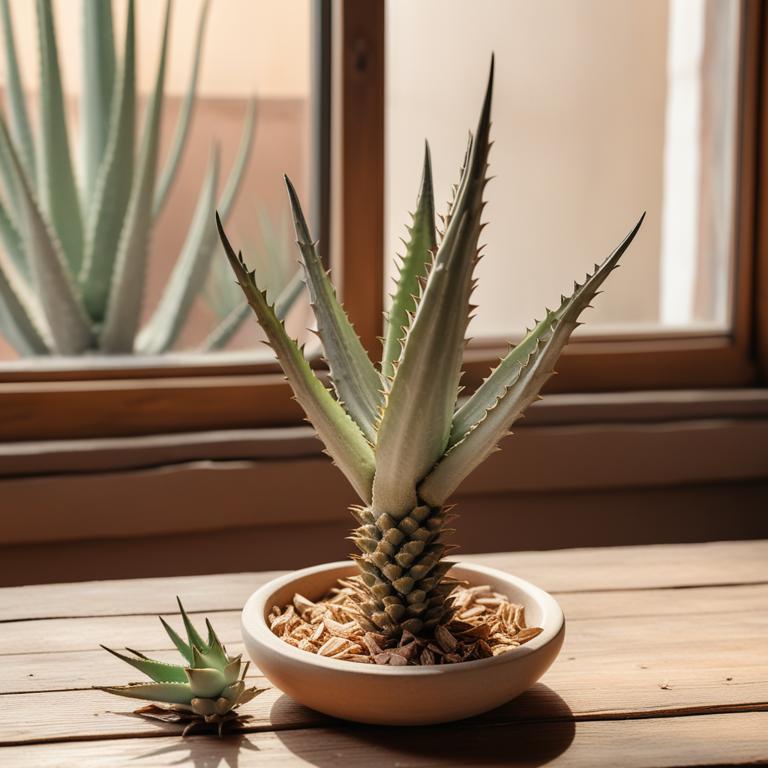
Eye Swelling: Causes, Symptoms, and Medicinal Herb Remedies

Rashes: Causes and Homeopathic Herbal Solutions
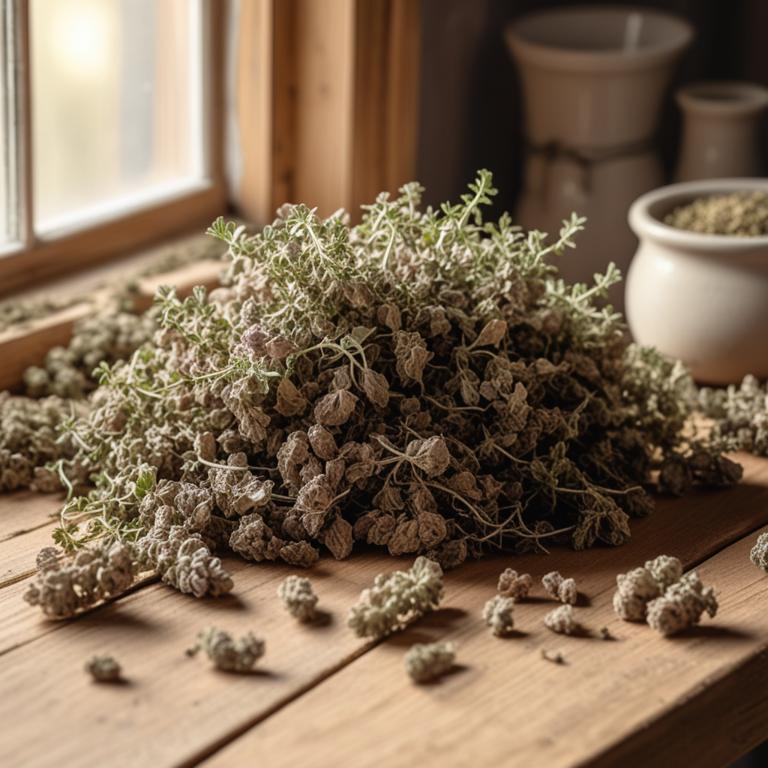
Open Pores: The Causes, Medicinal Herbs, and Herbal Remedies for Healthy Skin
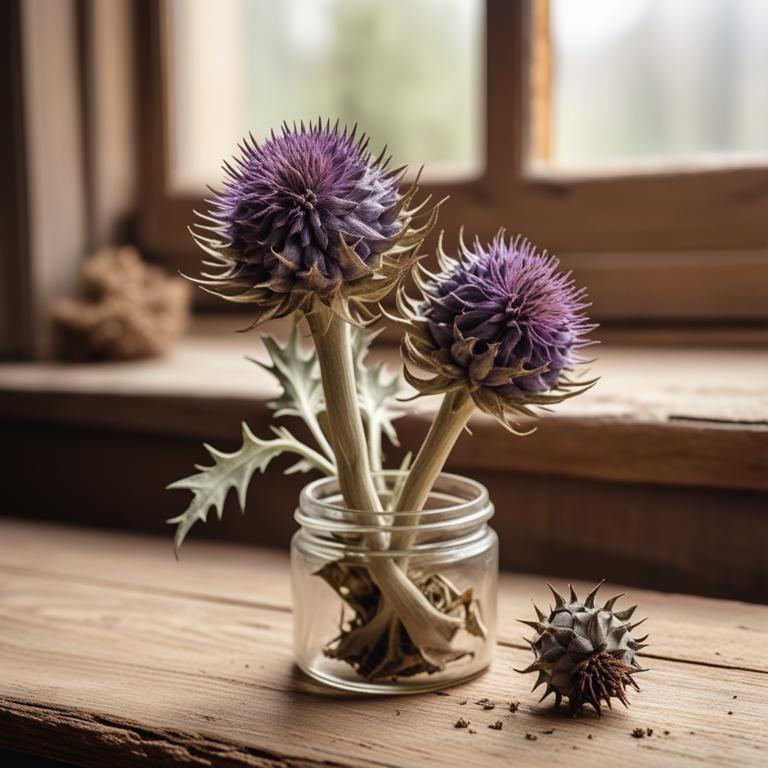
Identifying and Treating White Patches in Mouth: Causes, Herbal Remedies, and Preparations

Inflamed Mouth Care: Causes, Medicinal Herbs, and Natural Remedies for Healing
